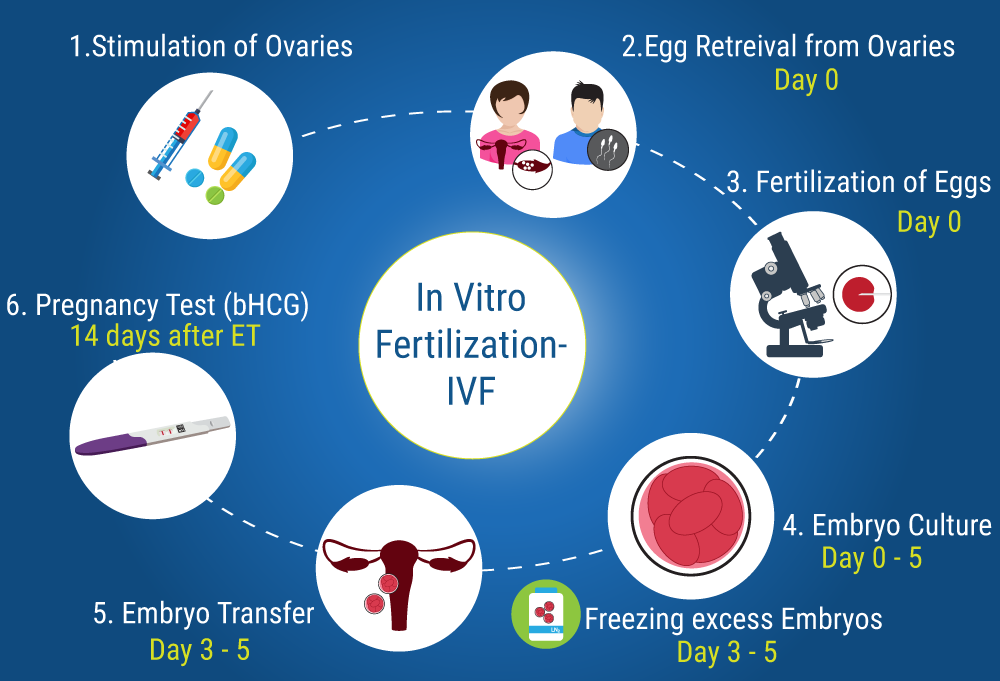
Introduction
In vitro fertilization (IVF) signifies a beacon of hope for numerous people today and couples grappling with infertility. More than the previous couple of a long time, developments in reproductive know-how have not only enhanced the odds of conception but also opened the door to a revolutionary process: preimplantation genetic analysis (PGD). PGD makes it possible for for the genetic screening of embryos prior to they are implanted in the uterus, making certain that only embryos devoid of identified genetic ailments or abnormalities are picked for pregnancy. As we navigate by means of the 21st century, PGD stands at the forefront of reproductive drugs, heralding a new era of genetic screening that guarantees to reshape the upcoming of IVF.
The Evolution of IVF and Genetic Screening
IVF has undergone a radical transformation considering the fact that the beginning of Louise Brown, the world’s initially “take a look at-tube newborn,” in 1978. Early IVF processes ended up marred by very low results charges and restricted knowing of embryonic progress. The introduction of genetic screening was a match-changer, letting embryologists to study the genetic make-up of embryos and choose those people with the best probable for a nutritious being pregnant.
The Enhancement of Preimplantation Genetic Diagnosis
PGD is a specialized approach that will involve getting rid of one particular or much more cells from an IVF embryo to test for precise genetic conditions prior to the embryo is transferred to the uterus. In the beginning made to display screen for sex-connected problems, PGD has expanded to include things like a extensive variety of genetic and chromosomal abnormalities.
Knowing the Genetic Screening Course of action
The process of PGD begins with the normal IVF cycle, where eggs are harvested and fertilized in the lab. When the embryos arrive at the blastocyst phase, a handful of cells are biopsied and analyzed making use of a person of several genetic screening methods, these types of as polymerase chain response (PCR) or following-era sequencing (NGS). These methods make it possible for for the detection of solitary-gene issues, chromosomal abnormalities, and even the potential for inherited most cancers syndromes.
The Ethics of Genetic Screening
As with many developments in biotechnology, PGD delivers with it a host of ethical concerns. The skill to pick out embryos centered on genetic criteria has sparked debate above the notion of “designer infants” and lifted considerations about eugenics. Ethicists and medical specialists keep on to grapple with these difficulties, striving to find a harmony in between the advantages of genetic screening and the ethical implications of genetic range.
The Impact of PGD on Genetic Ailments
PGD has experienced a profound effect on the prevention of genetic issues. Family members with histories of heritable conditions like cystic fibrosis, Tay-Sachs disorder, or Huntington’s condition now have the possibility to bear children devoid of the anxiety of passing these circumstances on. This has not only minimized the incidence of particular genetic problems but also alleviated the emotional and economical stress on people and healthcare units.
Enhancements and Improvements in PGD
The field of PGD is continually evolving, with new technologies improving its precision and scope. The arrival of in depth chromosomal screening (CCS) lets for the analysis of all 23 pairs of chromosomes, ensuring that only embryos with the correct quantity of chromosomes are implanted. This has significantly diminished the chance of miscarriages and improved the success premiums of IVF.
The Part of PGD in Loved ones Balancing and Gender Assortment
One particular of the extra controversial features of PGD is its use in family members balancing and gender variety. Some argue that the potential to pick out the sexual intercourse of one’s child is a all-natural extension of reproductive liberty, even though other people stress about the social and demographic implications of such choices. Nonetheless, in circumstances exactly where gender-precise genetic conditions are a issue, gender choice stays a very important component of PGD.
The Potential of PGD: Expanding the Options
As we search to the potential, PGD is poised to broaden in abilities. Analysis into polygenic possibility scores could empower PGD to monitor for elaborate situations like heart disorder or diabetic issues, which are influenced by numerous genes. There is also try this out to use PGD in conjunction with gene modifying systems like CRISPR, to not only pick out but also accurate embryos at the genetic amount, though this remains ethically and lawfully contentious.
Lawful and Regulatory Considerations
The regulation of PGD varies noticeably all around the world, with some nations around the world embracing the technology and other individuals imposing strict limits. As the science progresses, policymakers will be challenged to develop frameworks that ensure ethical programs of PGD when supporting scientific advancement.
Summary
Preimplantation genetic diagnosis stands at the intersection of genetics, medicine, and ethics, presenting unparalleled control around the genetic overall health of long term generations. Its integration with IVF has currently enhanced the potential customers of would-be mom and dad to have wholesome young children and claims to continue on its trajectory of innovation in the realm of reproductive overall health. As we advance, it is very important that we take into account the moral implications and lawful frameworks required to guidebook the dependable use of this potent technologies. The foreseeable future of PGD in IVF is not just about the science of genetics, but also about the values we as a society pick to uphold